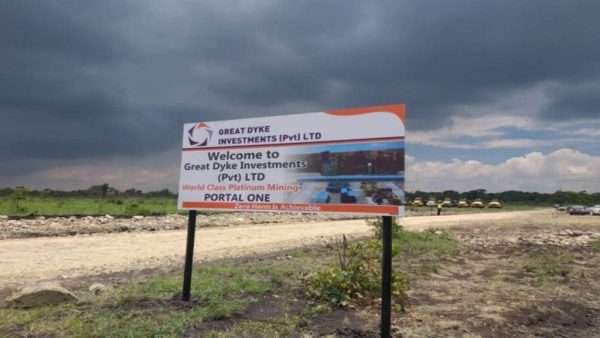Zimbabwe Lawyers For Human Rights (ZLHR) has filed an urgent application in a bid to suspend SI 26/2020 a law that allowed the government to exempt some businesses, in this case, Landela’s Great Dyke Investment (GDI) from paying tax.
Rudairo Mapuranga
Through their Twitter handle, ZLHR said a citizen Dumisani Dube represented by the organisation’s lawyer Tanaka Muganyi, argues that the tax holiday given to the mining firm is unconstitutional and violates equality of persons at the same time insulting the principle of finance management.
“Urgent application has been filed seeking suspension of SI 26/2021. Dumisani Dube represented by @ZLHR Lawyers Tanaka Muganyi, argues that exemption of Great Dyke Investments Pvt Ltd from paying taxes is unconstitutional, it violates the right to equal protection of the law.
SI 26/2020 also violates sec 298(1) of Const on principles of public finance management, sec 298(1)(b)(i) on burden taxation that must be shared equally.” ZLHR said.
The decision by the government to grant the Platinum miner a five-year tax holiday has been described as a win for the country on its quest to promote mining development and growth.
The move to exempt the mine from paying tax was described as a strategic intervention that has the potential to unlock mining sector potential and can contribute significantly towards the mining sector attaining a US$12 BILLION industry by 2023 consequently becoming a major catalyst for the country to achieve the President’s vision of becoming an upper-middle-income earner by 2030.
GDI is projected to reach full mining capacity in 2024 meaning that soon after the company starts operating at full throttle they will start remitting tax to the government.
The project has the potential to become Zimbabwe’s biggest and one of the world’s biggest platinum mines, its progress is therefore vital to the government’s plans to revive the ailing economy.
Chairperson and Economist of the Institute of Mining Research (IMR) Layman Mlambo said the decision by the government to grant the platinum miner a tax holiday was crucial for the development and growth of the mining project.
“It is not rare and imprudent to give big developing projects a breathing space to allow for full development at the corporate level. GDI is projected to reach full throttle (development) in 2024, that’s 5 years effective beginning of 2020. However, it is the corporate and not the dividend recipient that needs incentivising hence exemption. So exemption on CIT in my view is in the order given that there are elaborate facilities we are looking at (mining, mineral processing, beneficiation, other infrastructures, etc). Healthy cash flows are critical for GDI at this stage. The assumption is that the income tax exempted will be reinvested into the enterprise.” Mlambo said.
Mlambo also noted that the GDI will still be paying royalties to the government meaning their operation is still going to benefit the nation. He said the move is likely to have an impact on overall production and earning targets for the project and set the tone for rebuilding business confidence.
“It is true that there is a compromise on domestic resource mobilization because mining is a leading economic sector in Zimbabwe. However, we may balance this criticism with the fact that royalties are not exempted because they are paid on gross revenue (regardless of whether profits have been made or not). This is where the country gets much of its revenue and for the platinum sector in Zim, the rate is 10%, which is the highest in SADC. So, the country is not losing out on income completely. I would say that a sufficient answer to your question will require an analysis of the whole agreement between the government and GDI (the contract), which requires transparency/ disclosure of contracts. A whole fiscal regime would include royalties, ground rentals, expenditures on HRD/R&D, withholding taxes on repatriated dividends (with rates depending on dividend destination – tax haven or non-tax haven), local procurement/content clauses, any resource rent taxes, employment clauses, skills transfer, technology transfer, etc.” he said.
Parliamentary Portfolio Chairperson on Mines and Mining Development Hon Edmund Mkaratigwa said the decision by the government to exempt the platinum mine from paying tax for the next five years means the government is looking at a bigger picture.
“Sometimes it’s not only the immediate revenue from tax accruals that should inform policy, Mining is a powerful industry with the potential to transform the economy and it is not a coincidence that His Excellency (the President) has set it as the anchor in reviving our economy.
“To achieve this envisaged growth, we obviously need investment from both local and international capital.
“But we are in difficult times occasioned by Covid-19 which has weighed down businesses and investors might be tempted to slow down on new frontiers which are at development stage as is the case with most projects in Zimbabwe.
“So what a tax holiday does is to defend such an investment and you won’t see anyone pulling out. Even in the eyes of other would-be investors, the country is sure to earn some credit,” Honourable Mkaratigwa concluded.
.png)




